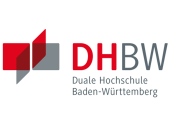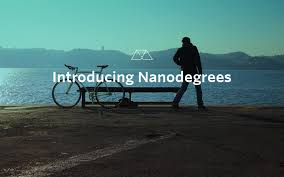 At the Baden Wurttemberg Cooperative State University next month we will kick of two new international partnerships for innovation in higher education, one is called MicroHE and the other one OEPass. Both projects deal with TOP forefront themes in European higher education, that is the question how to provide higher education in a more flexible, efficient and individually better way to suit individuals (lifelong) learning preferences and interests through developing concepts for recognizing open and flexible learning based on OER and open online resources.
At the Baden Wurttemberg Cooperative State University next month we will kick of two new international partnerships for innovation in higher education, one is called MicroHE and the other one OEPass. Both projects deal with TOP forefront themes in European higher education, that is the question how to provide higher education in a more flexible, efficient and individually better way to suit individuals (lifelong) learning preferences and interests through developing concepts for recognizing open and flexible learning based on OER and open online resources.
OEPass is a partnership of eight organizations from six countries (Stifterverband, European Distance and E-Learning Network,  Budapest Management University, Lithuanian Association of Distance and e-Learning, Knowledge Innovation Center from Malta, IC, National Distance Education University (UNED), Spain Tampere University, Finland, DHBW) led by the research group innovation in education of the Baden-Wurttemberg Cooperative State University, based at Heilbronn and Karlsruhe Campus. The project deals with the question how open online learning can be recognized, how this recognition can be put into credible formats so that learners can create a trusted portfolio of open learning experiences and have it recognized in higher education (formal) contexts.
Budapest Management University, Lithuanian Association of Distance and e-Learning, Knowledge Innovation Center from Malta, IC, National Distance Education University (UNED), Spain Tampere University, Finland, DHBW) led by the research group innovation in education of the Baden-Wurttemberg Cooperative State University, based at Heilbronn and Karlsruhe Campus. The project deals with the question how open online learning can be recognized, how this recognition can be put into credible formats so that learners can create a trusted portfolio of open learning experiences and have it recognized in higher education (formal) contexts.
 MicroHE puts the TOP forefront topic in higher education in Europe today in the spotlight: How to develop recognition for microcredentials and nanodegrees, for micro learning episodes, open and online. The international partnership consist of eight selected partners: Tampere University (Finland), Vytautas Magnus University (Lithuania), the Jožef Stefan Institute (Slovenia), Knowledge Innovation Centre (Malta), and the Fondazione Politecnico di Milano (Italy) as well as the Kowledge 4 All Foundation (UK).
MicroHE puts the TOP forefront topic in higher education in Europe today in the spotlight: How to develop recognition for microcredentials and nanodegrees, for micro learning episodes, open and online. The international partnership consist of eight selected partners: Tampere University (Finland), Vytautas Magnus University (Lithuania), the Jožef Stefan Institute (Slovenia), Knowledge Innovation Centre (Malta), and the Fondazione Politecnico di Milano (Italy) as well as the Kowledge 4 All Foundation (UK).
The theme is a consequent next step for research which has been carried out throughout the last ten years within the partnership in different constellations and with different partnerships. It is embedded into results from initiatives like the Open Educational Quality Initiative (OPAL), OERTest or VMPass and others – which we have worked on in the past years. For this particular project it has been worked out to a large extent by Antony Camilleri from Knowledge Innovation Center, one of the partners. At the DHBW we are working on the project with our research group for educational innovation, based at the DHBW Campus in Heilbronn and Karlsruhe, with Raimund Hudak, Anna Frankenberg, Alexander Jaensch und mir.
 MicroHE in a nutshell: The world of work increasingly demands a quick response from the education system to provide people with the desired qualifications. In response, MOOCs have tried to make their content as digestible and flexible as possible. Degrees are broken into modules; modules into courses; courses into short segments. The MOOCs test for optimal length to ensure people complete the course; six minutes are thought to be the sweet spot for online video and four weeks for a course. Universities are responding to this trend by becoming more modular, too. EdX has a micromaster in supply-chain management, that can either be taken on its own or count towards a full masters at MIT. Coursera now offers everything from full-degrees to single courses – with content offered for free and learners paying for assessment and accreditation at the end of the course.
MicroHE in a nutshell: The world of work increasingly demands a quick response from the education system to provide people with the desired qualifications. In response, MOOCs have tried to make their content as digestible and flexible as possible. Degrees are broken into modules; modules into courses; courses into short segments. The MOOCs test for optimal length to ensure people complete the course; six minutes are thought to be the sweet spot for online video and four weeks for a course. Universities are responding to this trend by becoming more modular, too. EdX has a micromaster in supply-chain management, that can either be taken on its own or count towards a full masters at MIT. Coursera now offers everything from full-degrees to single courses – with content offered for free and learners paying for assessment and accreditation at the end of the course.
However, while traditional students could depend on recognition of widely understood signals of experience and expertise such as university degrees, the same cannot be said for the creatures of MOOCS such as ‘nanodegrees’ and ‘specialisations’. The private sector is proposing a host of solutions to recognise learning in smaller segments, from the aforementioned nanodegrees, to centralised skill-banks verified by standardised testing to online systems of recommendation similar to those to peer-reviewed literature. (The Economist, Lifelong Learning Supplement, 2017)
The specific objective project is to examine the scope for and impact of micro-credentials – a form of short-cycle tertiary qualification – in European Higher Education. Currently, despite being primarily forms of formal education, micro-credentials such as micro-masters from EdX or nanodegrees from Coursera, are considered to be non-formal education. This project intends to enhance the recognition of such non-formal educational opportunities by bringing them within the framework of existing recognition and transparency instruments for formal education.
The project enhances skills-assessment due to the fact, that many micro-credentials are specifically designed to teach particular and narrow sets of transversal competences.
- Analyse and Model Micro-Credentials
- Scenario Building for Micro Credential Concepts in European Higher Education
- Creating a Recognition-Framework for Micro-Credentials
- Facilitating Portability of Micro-Credentials
- Quality Assurance
For our university the projects come timely because we have just decided on our e-learning framework strategy which also puts issues like learning material sharing in the foreground and from which initiatives in this direction will now start to be implemented.
OEPass in a nutshell: The project corresponds to the EU’s priorities when at the horizontal level the international recognition and ECTS transfer of eLearning education offerings according to the Bologna rules. It is based on a missing European solution to the recognition of digital learning forms, which promote are reliable and transparent ways of ECTS transfer for the internationalization of eLearning services. These shall be developed in the project. To spread these digital offers, it will be of elementary interest to providers, to increase the international interest with standardized recognition rules. By facilitating the recognition and support of the usage of ECTS in the field of Open Education (OE) and Virtual Mobility (VM), education and knowledge can be made accessible to new target groups. It supports the “Internationalization at Home” as well as digitization in the field of higher education and thus contributes to the unified European Higher Education Area.
The objectives of the project are based on the need to facilitate recognition of performances accomplished through OE and VM without prejudice to ECTS recognition. The recognition tool can be used across subjects and countries. The innovative strength of the project lies in the fact that so far no other project at EU level has focussed on recognition issues around OE and VM. If the project succeeds, to mutually agree with all partners on a concept to identify of the workload, test forms, quality criteria and identity of students, this project can be quite innovative respectively. The demand for developing standards, e.g. the overcoming of a missing trust, are clearly stated in the description of needs. Further insights and proposals for solutions are expected throughout the course of the project, both at German and at European level. It is suggested to include international accreditation authorities for the external verification / certification of the quality of eLearning as a prerequisite for recognition.
Stay tuned – I will report from the projects regularly here in the Blog.

Pingback: Haven’t heard of micro-credentials? | Ulf-Daniel Ehlers
Pingback: Future higher education by ‘Futurelearn’ | Ulf-Daniel Ehlers